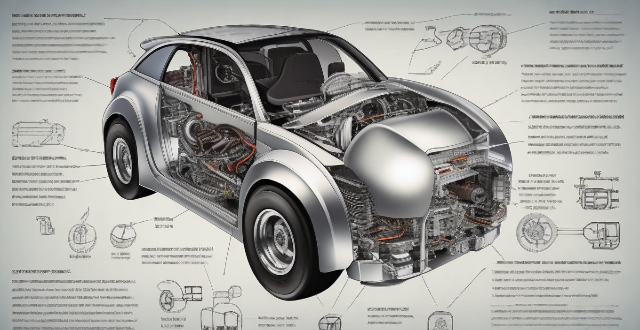This article explores the relationship between regular maintenance and fuel efficiency in cars. It explains how regular maintenance can improve a car's fuel efficiency by ensuring optimal engine performance, maintaining proper tire pressure, checking brakes, and keeping the transmission smoothly operating. The article also provides tips for maintaining a car for optimal fuel efficiency, including following the manufacturer's maintenance schedule, keeping up with oil changes, checking tire pressure regularly, replacing air filters, and keeping the car clean. Overall, the article emphasizes the importance of regular maintenance in improving a car's fuel efficiency and extending its lifespan.

Does Regular Maintenance Improve a Car's Fuel Efficiency?
Introduction
Car maintenance is an essential aspect of vehicle ownership, and it plays a crucial role in ensuring that your car operates efficiently. One common question among car owners is whether regular maintenance can improve a car's fuel efficiency. In this article, we will explore the relationship between regular maintenance and fuel efficiency and provide you with some tips on how to maintain your car for optimal performance.
The Importance of Regular Maintenance
Regular maintenance is essential for keeping your car running smoothly and efficiently. Neglecting routine maintenance can lead to various issues, such as engine problems, reduced fuel efficiency, and shortened vehicle lifespan. By performing regular maintenance tasks, you can help prevent these issues and ensure that your car runs at its best.
How Regular Maintenance Affects Fuel Efficiency
Regular maintenance can have a significant impact on a car's fuel efficiency. Here are some ways in which regular maintenance can help improve your car's fuel efficiency:
1. Engine Performance
A well-maintained engine will run more efficiently, which can lead to better fuel economy. Regular oil changes, air filter replacements, and tune-ups can help keep your engine running smoothly and reduce the amount of fuel it consumes.
2. Tire Pressure
Maintaining proper tire pressure is crucial for optimal fuel efficiency. Underinflated tires can increase rolling resistance, causing your car to work harder and consume more fuel. Checking your tire pressure regularly and keeping them properly inflated can help improve your car's fuel efficiency.
3. Brakes
Worn brake pads or rotors can cause your car to use more fuel as it requires more energy to stop the vehicle. Regular brake inspections and timely replacements can help ensure that your car's braking system is functioning correctly, leading to improved fuel efficiency.
4. Transmission
A smoothly operating transmission is essential for optimal fuel efficiency. Regular transmission fluid changes and inspections can help prevent transmission problems that could lead to decreased fuel efficiency.
Tips for Maintaining Your Car for Optimal Fuel Efficiency
Now that we've discussed how regular maintenance can improve a car's fuel efficiency let's look at some tips for maintaining your car for optimal performance:
1. Follow the Manufacturer's Maintenance Schedule
The manufacturer's maintenance schedule provides guidelines on when to perform specific maintenance tasks, such as oil changes, tire rotations, and brake inspections. Following this schedule can help ensure that your car receives the necessary maintenance to operate efficiently.
2. Keep Up with Oil Changes
Regular oil changes are essential for keeping your engine running smoothly and efficiently. Make sure to change your oil according to the manufacturer's recommendations or every 5,000 miles, whichever comes first.
3. Check Tire Pressure Regularly
Proper tire pressure is crucial for optimal fuel efficiency. Check your tire pressure monthly and adjust it as needed to ensure that your car operates efficiently.
4. Replace Air Filters Regularly
A clean air filter allows your engine to breathe easier, leading to better fuel economy. Make sure to replace your air filter according to the manufacturer's recommendations or every 12,000 miles, whichever comes first.
5. Keep Your Car Clean
A clean car is not only aesthetically pleasing but also helps improve aerodynamics, leading to better fuel efficiency. Make sure to wash your car regularly and remove any unnecessary weight from the trunk or cargo area.
Conclusion
In conclusion, regular maintenance plays a crucial role in improving a car's fuel efficiency. By following the manufacturer's maintenance schedule, keeping up with oil changes, checking tire pressure regularly, replacing air filters, and keeping your car clean, you can help ensure that your car operates efficiently and uses less fuel. Remember, a well-maintained car not only saves you money on gas but also extends the lifespan of your vehicle.